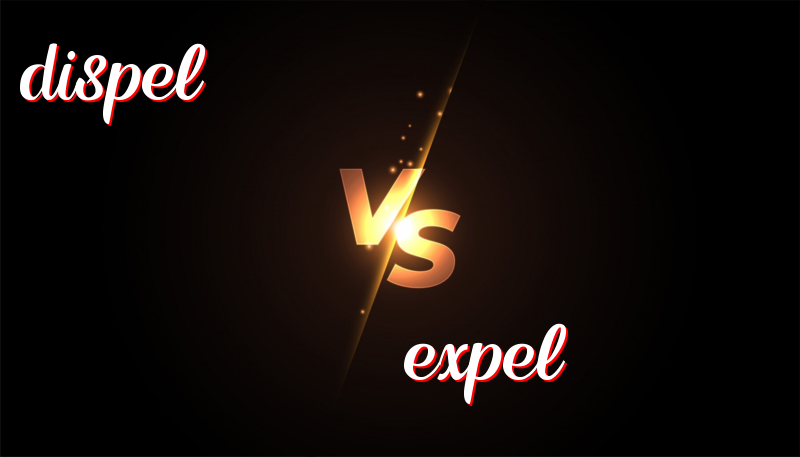Dispelling vs. Expelling: Be Gone or Begone!
Dispelling Confusion: Understanding the Difference Between “dispel” and “expel”
In English, the words “dispel” and “expel” may seem similar, but they have different meanings and uses. Let’s explore the distinctions between these two words to use them correctly.
History:
The word “dispel” comes from the Latin word “dispellere,” meaning “to drive away.” On the other hand, “expel” has Latin origins as well, from the word “expellere,” which means “to drive out.”
How to Use Them:
When you want to make something disappear or remove doubts or fears, you use “dispel.” But when you want to force someone to leave a place, you use “expel.”
Trick to Remember the Difference:
Think of “dispel” as “disappear” – when you dispel something, you make it vanish. On the other hand, think of “expel” as “exit” – when you expel something, you force it to leave.
Examples with “dispel”:
- I tried to dispel her fears by showing her there was nothing to be afraid of.
- The magician used his wand to dispel the illusion and reveal the truth.
- Sunlight streaming through the clouds helped to dispel the darkness of the night.
- His charming smile could easily dispel any feelings of anger or resentment.
- Reading a good book can dispel boredom and transport you to a different world.
Examples with “expel”:
- The principal decided to expel the student for breaking the school rules.
- He was expelled from the team for not following the coach’s instructions.
- The smoke alarm quickly expels smoke from the building to keep everyone safe.
- The bouncer had to expel the troublemaker from the club to maintain order.
- Inhaling deeply, she felt a sense of calm as if she were expelling all her worries.
Summary:
Remember, you “dispel” fears, doubts, or darkness to make them disappear. In contrast, you “expel” someone or something to force them to leave a place.

Leave a Reply
You must be logged in to post a comment.